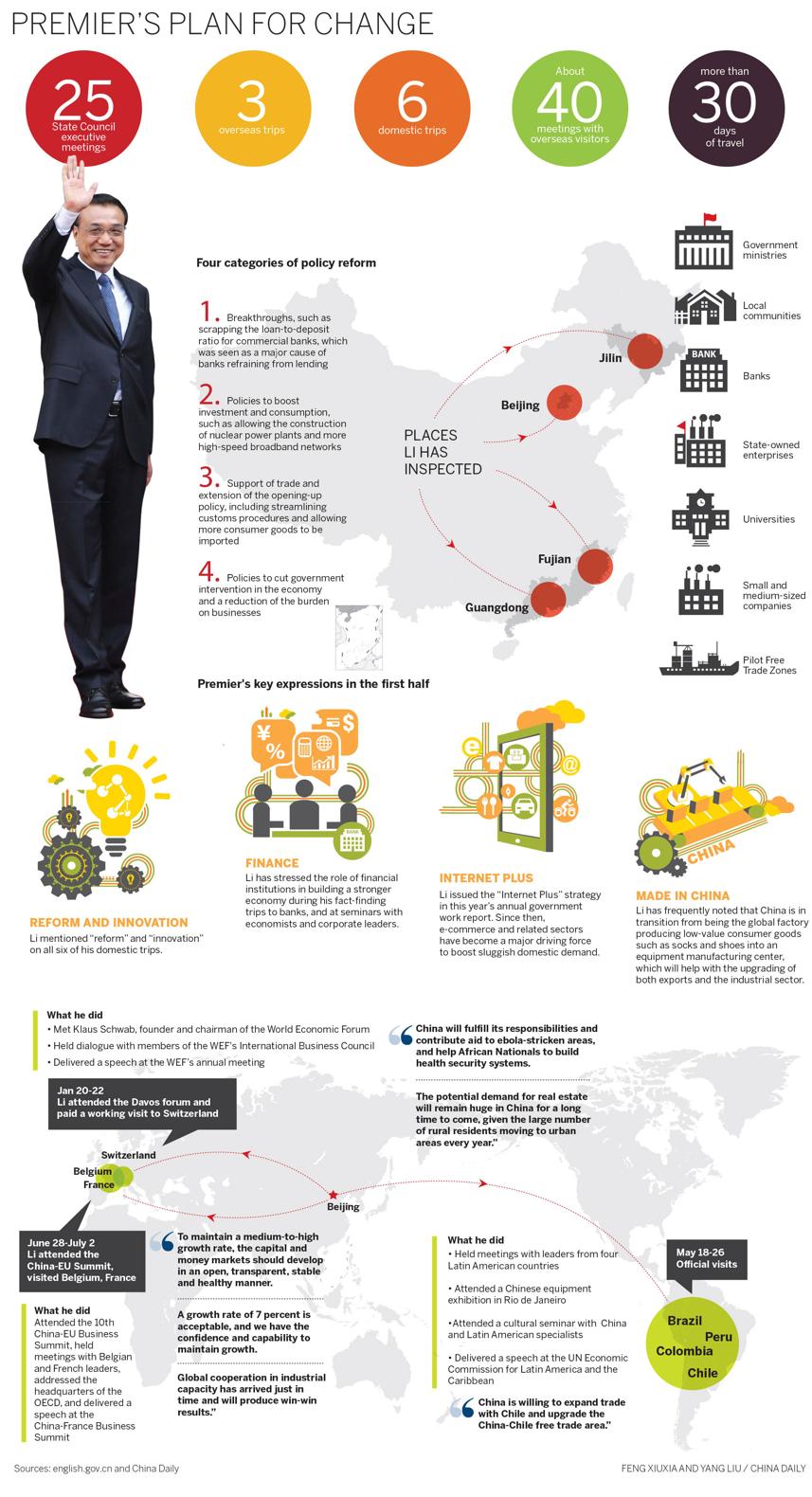
When Premier Li Keqiang greeted New Zealand Governor-General Jerry Mateparae in a Uygur-style room in the Great Hall of the People in Beijing last week, he probably didn’t expect the high-level bilateral talks to devolve into a question and answer session about China’s economic reforms.
While it’s customary for international leaders to inquire about the latest news on the Chinese economy-it’s an issue that has ramifications for all nations, after all-Mateparae probed a little deeper below the surface of GDP growth and discussed the underlying health of the economy.
Premier Li’s message to his guest, and the world at large, was that implementing reforms is a tough, multifaceted job, but the government is determined to push the changes through, including major reforms such as the reduction of the government’s role in the economy and improvements to the financial sector.
The Premier began restructuring the world’s second-largest economy when he assumed office in 2013. The reforms, their progress and the chances of success, are at the top of the list of concerns for the central leadership-and other world leaders, given the strength of the Chinese economy in an increasingly interlinked and globalized world.
Premier Li is almost halfway through his first five-year term and the reforms are continuing. So far, the signs have been encouraging. In the first half of the year, the economy showed signs of growing robustness, with better-than-expected growth of 7 percent.
Momentum expected
Zhao Zhenhua, an economist at the Party School of the Central Committee of the Communist Party of China, said consumer prices are still too low. However, the economy is stabilizing after a tough start to the year, and stronger momentum can be expected in the second half because pledged investment is now feeding into the economy, and the freshly streamlined bureaucracy has started to have a positive impact on business, Zhao added.
That success has been hard-won, especially given the disappointing economic data in the early part of the year, Zhao said.
A closer look at this year’s State Council executive meetings, a weekly working conference presided over by the premier to discuss essential issues with members of his Cabinet, provides an insight into Premier Li’s methods.
By the start of this week, Li had held 17 executive meetings that mainly focused on four areas of reform.
First, seven new policies will be implemented to smash institutional barriers and free businesses from bureaucracy, including the cancellation of the outdated loan-to-deposit ratio for banks, which was seen as one of the factors that prevented banks from lending.
Second, policies have been formulated to encourage investment and consumption to boost economic growth. The moves will include the construction of faster Internet broadband networks to facilitate e-commerce, and will also entail massive infrastructure construction and the use of a huge amount of raw materials.
The third thread centered on the promotion of trade, and greater opening-up. A wider range of popular Western products will be imported to boost weak domestic demand and reverse the outflow of hard currency by Chinese tourists traveling overseas.
Raising efficiency
Niu Li, director of the Macro Projection Department at the State Information Center, said the first three sets of amendments would be useless unless progress can be made on the fourth-greater government efficiency and less intervention in the market.
“Easier administrative procedures, as well as streamlined customs procedures, will lay the basis for the other developments,” he said. “That’s why this theme was reflected in the majority of topics under discussion. That shows it has a high priority on Premier Li’s agenda.”
Niu described the restructuring program as a way of balancing long-term gain with short-term pain, as Premier Li attempts to use a consumption-driven, services-oriented growth model to spur economic expansion to provide jobs and boost incomes.
